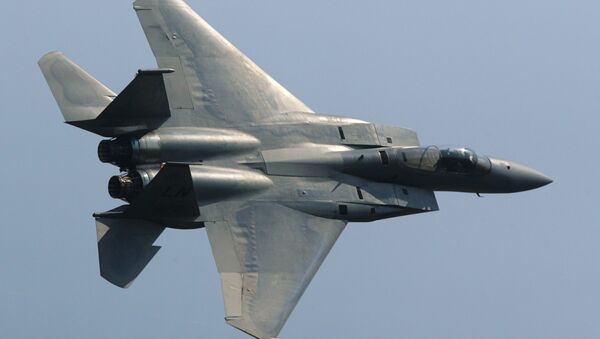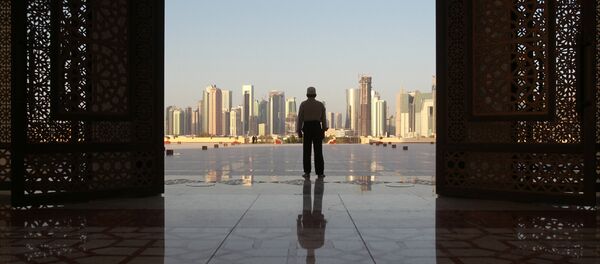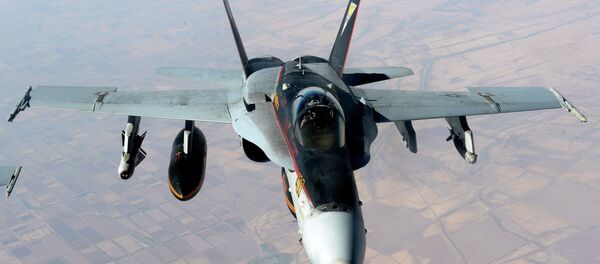Speaking to Sputnik Turkey, Varli commented on the ongoing Qatari crisis and the US-led coalition's advance on Raqqa, the de facto capital of the terrorist group Daesh (ISIS/ISIL) in Syria.
"In the Middle East, the Trump administration is taking steps similar to those we had observed during the Korean Peninsula crisis two months ago. First, the US artificially instigates tensions between regional players and then derives a direct economic benefit from the situation," Varli said.
The Turkish political analyst drew attention to the fact that following the escalation in tensions the US concluded multibillion-dollar arms deals with both South Korea and Qatar.
Indeed, amid the Gulf diplomatic crisis, the Pentagon has agreed to sell $12 billion worth of US F-15 fighter jets to Doha, CNN reported on June 15.
According to Varli, it is hardly a coincidence that the Qatari crisis erupted on the heels of Donald Trump's visit to Saudi Arabia.
"Right after that, the US took advantage of the convenient moment of this crisis and concluded a substantial arms deal with Qatar," he noted.
"This strategy was used [by Washington] in the South China Sea, and now we see it in the Middle East region, in Qatar," Varli pointed out.
Political analyst and former Turkish MP Dr. Oya Akgonenc Mugisuddin in some sense echoed Varli in his previous interview with Sputnik Turkey.
According to Mugisuddin, it appears that the Qatari crisis was created artificially as part of Washington's broader strategy in the Middle East.
Furthermore, he believes that the crisis is nothing but a maneuver to distract attention away from the emergence of a Kurdish state in Syria.
"While Turkey and other states are engaged in resolving the crisis around Qatar, in Syria — thanks to the operation for the liberation of Raqqa from Daesh by the Kurdish self-defense forces — a Kurdish state is actually being formed," Mugisuddin told Sputnik, adding that this development "fully fits into Washington's Middle Eastern plans."
"The main question is what will happen after the capture of Raqqa, what the future has in store for the Syrian city," the Turkish journalist noted.
The US-backed Syrian Democratic Forces (SDF), which are predominantly comprised of Kurdish militia units continue to gain ground in the Raqqa region.
Still, it is unlikely that this territory would be granted to the Kurds, Varli emphasized, referring to the fact that the region is inhabited mostly by Sunni Arabs.
"It is not clear how long the US will maintain its presence here after the capture of [Raqqa]. Raqqa will not be given to the Kurds, they cannot rule it because Raqqa is not a Kurdish city, it is located outside the territories inhabited by the Kurds. On the other hand, it will not be given to the Syrian government either. In this scenario, the most logical option [in the eyes of the US]… will be to transfer control over the city to local forces," the Turkish journalist assumed.
However, it is obvious that local Syrian forces don't have enough resources to keep the city, Varli continued, referring to the possibility of Daesh recapturing its stronghold.
"Therefore, most likely, a statement will be made about the transfer of Raqqa to the control of local authorities, which would be backed by the US," the journalist said, adding that Washington will de facto continue to maintain its control over the city with the assistance of local Arab forces.





